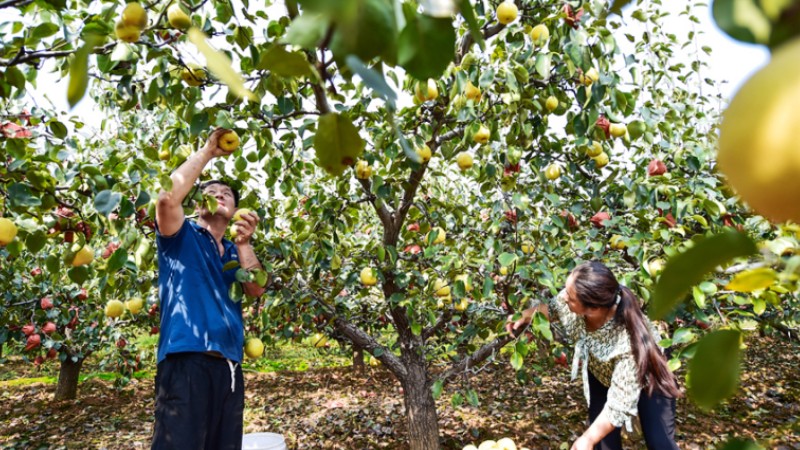Education plays key role in trend of delaying marriage, childbirth
The age at which Chinese people get married or have children has increased steadily in the past 30 years, according to a new study.
Titled "Postponement of Marriage and Childbearing in China during 1990-2020: Trends and Characteristics", the study analyzes the national census and sampling survey data to explain the trends of delayed marriage and childbirth.
The study found that the nationwide average age for first marriage increased from 22.87 in 1990 to 28.67 in 2020. Although there were small dips along the way, there was a clear upward trend in both urban and rural areas to delay marriage.
The rate of unmarried people also increased significantly in the past 30 years, the study found. In 1990, only 4.82 percent of Chinese people were unmarried at age 30. The rate increased to 21.75 percent in 2020.
The study, published in academic journal Population Research, was penned by Zhang Xianling, an associate professor at the School of Sociology and Psychology at Central University of Finance and Economics, and Sheng Yinan, a professor at the School of Labor and Economics at Capital University of Economics and Business.
Education has been an important factor for young people delaying their marriage, according to the study. The more educated one is, the more likely one will delay getting married, it found.
As more women in rural areas received higher education, their prospect of marrying undereducated men became bleak, and it was more likely for them to stay unmarried for their whole life, the study showed.
Almost 20 percent of men with only primary school education were unmarried at age 40 in 2020, up by 8 percent since 1990, Zhang said.
With more rural women going to cities to receive education and find work, it is easier for them to find men with more financial means, she said, adding that this is a key reason for many undereducated men in rural areas not finding a suitable partner.
In many places, the practice of a man offering betrothal money to his prospective bride continues, so it is difficult for a man with low financial means to find a suitable wife, Zhang said.
"With urbanization continuing and more women receiving better education, we predict the trend will continue, and it will be even harder for a man with low education and inadequate financial means to find a wife," she said.
It is important for men to receive more education, work harder and improve their financial status, while the social practice of betrothal gifts should also stop, she added.
According to the study, women in China prefer having children after getting married, which is by default increasing the age at which they have children.
The average childbearing age of women increased to 29 in 2020 from 26 in 1990. The trend was more common among urban women, whose average childbearing age in 2020 was 30.
Yu Tingting, 31, from Changsha in Hunan province, got married two years ago. She said that she and her husband have decided to improve their own lives further before having a child.
"Having a baby now will be a tough challenge for us. We both have very busy professional lives and will hardly have time to look after the baby. Besides, the cost of raising a child is high," she said.
According to the Ministry of Civil Affairs, around 6.83 million couples had registered for marriage last year, which was a new low in nine years.
A survey conducted by Zhenai.com, a popular matchmaking website, found that more than 60 percent of the surveyed women in Shenzhen, Guangdong province, support getting married and having children late, and they consider 31 to be the ideal age for marriage.
More than 60 percent of the women were also single, and they said they had not been in a relationship for almost two years.
Zhang, the associate professor, said that many young people consider both marriage and having children optional. The rising cost of living and the prospect of having to raise children amid increasing economic pressures act as major deterrents, she added.
Photos
Related Stories
Copyright © 2023 People's Daily Online. All Rights Reserved.









